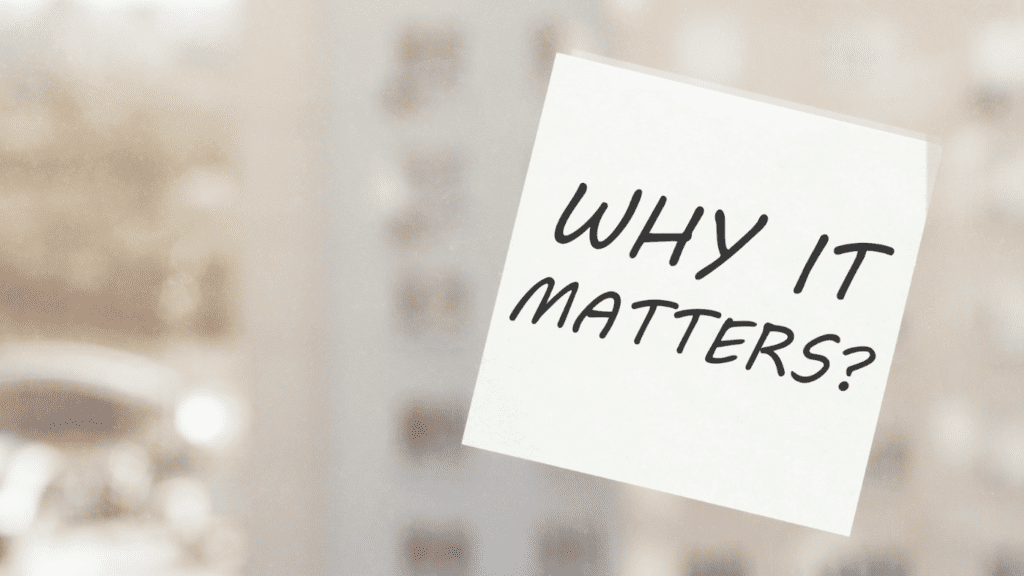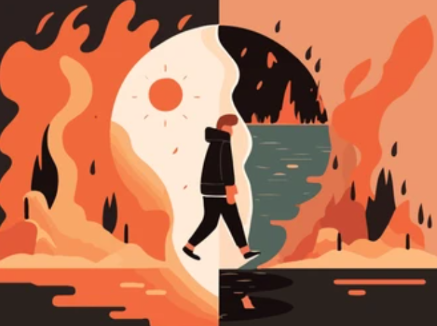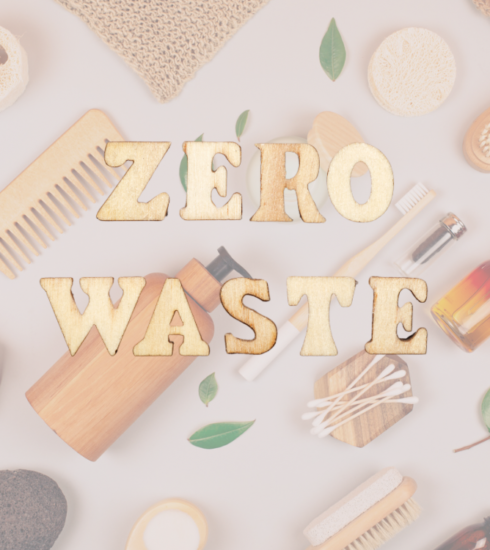The Truth About Climate Anxiety: Overheated Or Overdue?
The world is changing—faster than ever. The heatwaves, the floods, the vanishing seasons—if you’ve noticed it all but still don’t see a crisis, ask yourself: is it ignorance or just the comfort of privilege?
What is Climate Anxiety?

Climate anxiety is the overwhelming worry about the future of our planet. It’s not paranoia—a rational response to undeniable environmental changes. Scientists confirm that 2024 was one of the hottest years on record, with global temperatures surpassing the 1.5°C threshold for the first time. Sea levels are rising. Ecosystems are collapsing. The facts are undeniable, and they weigh on us.
For many, climate anxiety isn’t just a fleeting concern—it’s a persistent burden. Young people, in particular, feel it most. A global study found that 59% of youth feel “very” or “extremely” worried about climate change. They ask: Will our cities be underwater? Will food become scarce? Is it already too late? Meanwhile, some people are still debating whether climate change is even real. Must be nice to live in that level of denial.
Climate Anxiety: Why Does It Matter?

Some call climate anxiety unnecessary panic. Sure—because record-breaking heat waves, cities flooding overnight, and species vanishing into oblivion are totally normal. The real issue isn’t anxiety—it’s powerlessness. We see the rising temperatures, the worsening floods, the destruction, and we talk about it. But what changes?
Ask around, and the same conclusion emerges: It’s not in our hands. Real change needs to come from governments, corporations, and those with actual control. We can swap plastic straws for metal ones, but what does that mean when oil giants spill millions of barrels into the ocean? We can turn off the lights, but what does that do when industries continue burning fossil fuels at record rates?
The truth is, we aren’t just individuals making choices—we’re consumers locked into a system that isn’t designed for sustainability. Until regulations come with real teeth—fines, penalties, mandates—we’re left with performative fixes and a nagging sense of doom.
Climate Change: Do We Really Care?

We like to believe that awareness leads to action. That education breeds responsibility. That once people understand climate change, they’ll do something about it. But is that true?
Look around. Some of the most well-informed people still book unnecessary flights, buy fast fashion, and let their ACs run all day. Education doesn’t override convenience. As long as daily life remains unaffected, detachment prevails. A heatwave might make us complain, a flood might make headlines, but as long as our Wi-Fi works and food delivery arrives on time, does it really change anything?
Maybe that’s the real issue. It’s not that we don’t understand climate change—it’s that we refuse to let it disrupt our comfort. Fast fashion? Still thriving. Private jets? Still flying. But hey, at least we banned plastic straws. (Or tried to).
The Planet is Responding. Are We?

We’ve done something no other species has—reshaped the planet so drastically that nature is struggling to keep up. What once took centuries now happens in decades, in real-time.
- Bees, the backbone of pollination, are vanishing, threatening global food supplies.
- Deep-sea creatures, like the anglerfish and the infamous ‘doomsday fish’ (you’ve seen it on Reels, don’t lie), are rising to the surface, disoriented.
- Fish wash up dead by the thousands.
- Glaciers melt at alarming rates.
- The Arctic, once white, is turning green due to rising temperatures.
- Underground water reserves are shrinking.
And the list goes on and yet, we still debate whether climate change is “real enough” to warrant action.
Nature isn’t just struggling—it’s fighting back.
- Wildfires burn hotter, longer, faster.
- Heatwaves break records year after year.
- Floods swallow entire cities.
- Storms grow fiercer, deadlier.
At what point do we realize we’re no longer just witnesses to climate change, but its cause? And if we refuse to change, how long before we become its next victims?
What Happens Next?

We’ve spent years setting impossible targets—net zero by 2030, carbon neutrality by 2050—but let’s be honest: these deadlines mean nothing without immediate action.
So instead of aiming for perfection, why not start small? What can be achieved in the next two years?
- Sustainable urban planning → Governments must implement smart infrastructure prioritizing renewable energy, efficient public transport, and green spaces.
- Legally binding wildlife and marine protection treaties → No more empty reports—actionable commitments must be enforced.
- Deforestation accountability → Industries that cut trees should be legally required to replant double.
- Corporate responsibility through regulations, not pledges → Strict fines and transparency requirements must replace voluntary commitments.
- Make sustainable living the default → Solar panels should be the norm, not a luxury. Plastic bans should be strict, not taxed. Public transport should be reliable enough to reduce car dependency.
History has shown that without laws, mandates, and consequences, those who profit from destruction will keep destroying.
We Say We Want Change—So Why Not Make It Easier?
Sustainable living sounds great in theory but in reality? It’s either too expensive, too inconvenient, or both. Want to switch to solar energy? That’s a hefty price tag. Want to build an eco-friendly home? Good luck with the extra costs. Meanwhile, fossil fuels and unsustainable practices remain the cheaper, easier choice.
If governments truly want people to go green, they need to make it an affordable, accessible option. Instead of just telling us to “do better,” they must create a system where the better choice is also easier.
Some Ideas That Could Actually Work

Sustainable Infrastructure That’s Affordable & Practical
- Subsidized solar panels & green energy → If governments can subsidise oil and gas, why not redirect funds to make solar and wind energy cheaper?
- Eco-friendly housing incentives → Tax breaks for sustainable construction, rainwater harvesting, and energy-efficient appliances.
- Mandatory green rooftops in cities → Every new building should include green cover or solar panels.
Make Corporations Pay for Their Pollution
- A carbon tax that actually hurts → Hefty fines for companies exceeding emissions limits—without loopholes.
- Plastic production quotas → Instead of banning plastic straws and bags (small-scale fixes), cap the total plastic a company can produce annually.
- Sustainable packaging law → Brands must use biodegradable/recycled materials—and consumers shouldn’t have to pay extra for it.
Protect Natural Resources Before It’s Too Late
- Water conservation rules → Industries wasting massive amounts of water should be taxed more.
- Reforestation as a legal requirement → If deforestation is inevitable, large-scale replanting should be enforced.
- Marine life protection laws → Ban or limit deep-sea mining, oil drilling, and overfishing in fragile ecosystems.
Educate & Incentivize People to Change
- Sustainability rewards → Like cashback, but for eco-friendly actions. Use public transport? Recycle? Switch to solar? Get discounts on taxes or electricity.
- Green education in schools → Kids need hands-on lessons on sustainable living—how to grow food, conserve energy, and reduce waste.
We Know What Needs to Be Done—Now Let’s Make It Happen

Telling individuals to “do their part” is useless if sustainable choices aren’t accessible. If we truly want change, governments and corporations must step up and create systems where eco-friendly choices are the default, not the exception.
Because at the end of the day, people won’t switch to sustainability out of guilt—but they will if it’s cheaper, easier, and just makes sense.
We’ve rewritten the planet’s rules, and nature is playing catch-up in ways we can’t control. Wildfires don’t wait for policy changes. Heatwaves don’t care about political debates. The planet is reacting—violently. So maybe the real question isn’t ‘Is climate anxiety justified?’ but ‘How long before it’s too late to do anything about it?
Author: Pragathi R
References:
United Nations. (n.d.). Climate reports. United Nations.
https://www.un.org/en/climatechange/reports
Yale Climate Connections. (2025, January). Young people are suffering from climate anxiety—Here’s how to help. Yale Climate Connections. Retrieved from https://yaleclimateconnections.org/2025/01/young-people-are-suffering-from-climate-anxiety-heres-how-to-help/
UNICEF. (n.d.). Climate anxiety: How to support children’s mental health. UNICEF Parenting.
https://www.unicef.org/parenting/mental-health/climate-anxiety







8 Comments
Darryl Khan
10 months agocrazy stuff keep it up
Alifiya A C
10 months agoVery well written
Shrishti
10 months agoMuch needed consciousness
Russel Ryle
10 months agoGood initiative keep growing
Nida
10 months agoThis is amazing, well done mate.
Pushpa
10 months agoExcellent pragathi , keep it up
ಮಲ್ಲಿಕಾರ್ಜುನ ರಾಜು
10 months agoGood work, keep it up….
Mallikarjuna Raju
Founder President
Youth for Human Rights Karnataka &
Karnataka Karmika Kalyana Prathishtana
General Secretary
JayaKarnataka Kattada Matthu Ithare Nirmana Karmikara Sangha
General Secretary – South India
National Anti corruption and Operation Committee of India
Investigation Journalist
Rajeswari Vahini
Bindiya
10 months ago“Your ability to convey complex emotions in such simple language is truly remarkable.”